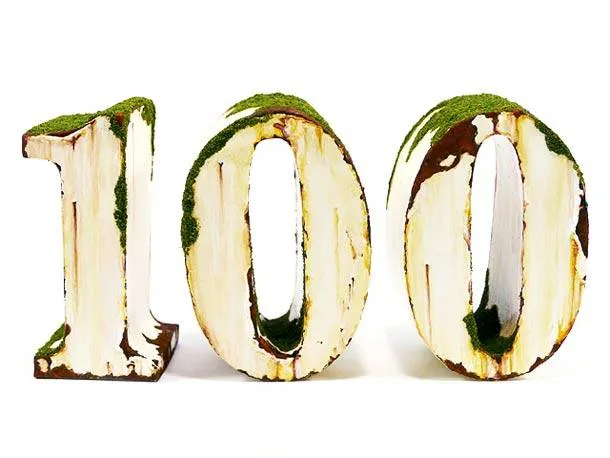
Book to the Future: 10 Authors We’ll Still Read and Revere in 100 Years
- The authors chosen had to be currently living.
- The authors chosen had to be under the age of 60. (It’s admittedly arbitrary, but part of the goal here is to place bets on authors whose place may be less than certain. Making eligible authors like Toni Morrison, Margaret Atwood, Philip Roth, Stephen King, and Cormac McCarthy, who have all but cemented their literary legacies, would make our predictions a little too easy.)
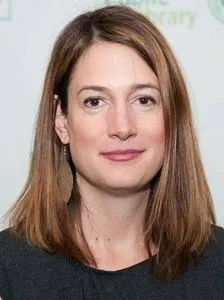 10. Gillian Flynn
You’ve probably either read Gone Girl, know someone who has, or are currently in a room with someone reading it to you. That’s how ubiquitous Flynn’s third novel has been. Its effect goes beyond simple popularity, though. Gone Girl made people dive into Flynn’s backlist and fall in love (in the most anxiety-ridden, nail-bitten way possible) with her earlier work. As a result, she’s reached that coveted point where her future releases will be met with rabid anticipation from a readership sure to keep growing.
10. Gillian Flynn
You’ve probably either read Gone Girl, know someone who has, or are currently in a room with someone reading it to you. That’s how ubiquitous Flynn’s third novel has been. Its effect goes beyond simple popularity, though. Gone Girl made people dive into Flynn’s backlist and fall in love (in the most anxiety-ridden, nail-bitten way possible) with her earlier work. As a result, she’s reached that coveted point where her future releases will be met with rabid anticipation from a readership sure to keep growing.
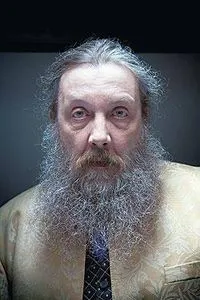 8. (tie) Alan Moore
In a hundred years, a history book would have a big gap in it if it didn’t discuss Alan Moore’s effect on the comics — as an art form, and as a commercial medium. However, I think he’ll still be read actively in 100 years because when you take away the fame and look at the books themselves, they are full of humans and stories, full of experiments with the form and content of comics, full of brutality and humor and life and love and above all else, honesty. It’s work full of passion that matters, to the artist as well as the audience. I can see handing his comics to my grandchildren and saying “trust me, read this,” as I would do with many long-lived classics. That’s the key to immortality.
– Peter Damien
8. (tie) Alan Moore
In a hundred years, a history book would have a big gap in it if it didn’t discuss Alan Moore’s effect on the comics — as an art form, and as a commercial medium. However, I think he’ll still be read actively in 100 years because when you take away the fame and look at the books themselves, they are full of humans and stories, full of experiments with the form and content of comics, full of brutality and humor and life and love and above all else, honesty. It’s work full of passion that matters, to the artist as well as the audience. I can see handing his comics to my grandchildren and saying “trust me, read this,” as I would do with many long-lived classics. That’s the key to immortality.
– Peter Damien
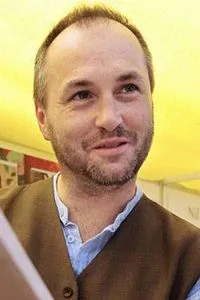 8. (tie) Colum McCann
8. (tie) Colum McCann
McCann is a linguistic alchemist. On their own, his understated sentences are good, but when strung together, their effect is almost magical. Let the Great World Spin won the National Book Award and knocked my own personal socks right off my feet. Transatlantic is another master class in making a huge world feel small. When the time comes to take stock of the fiction from the turn of the century, McCann’s name won’t be far from many minds.
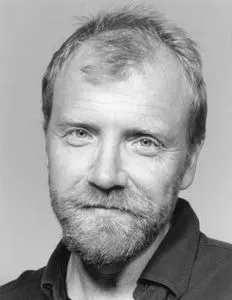 7. George Saunders
Like Raymond Carver and Flannery O’ Connor before him, Saunders is primarily known for his short fiction. He’s won the National Magazine Award for fiction four times, been a finalist for the PEN/Hemingway Award, won a MacArthur Fellowship, and just this year won the PEN/Malamud award for Tenth of December. Short story writers’ staying power can be tough to predict, as readers generally know authors – even those with diverse publishing histories – by their novels. Critics love Saunders though, and when you’re at the top of your field, even if it’s a less visible one, you tend to end up in front of readers’ eyes in one way or another.
7. George Saunders
Like Raymond Carver and Flannery O’ Connor before him, Saunders is primarily known for his short fiction. He’s won the National Magazine Award for fiction four times, been a finalist for the PEN/Hemingway Award, won a MacArthur Fellowship, and just this year won the PEN/Malamud award for Tenth of December. Short story writers’ staying power can be tough to predict, as readers generally know authors – even those with diverse publishing histories – by their novels. Critics love Saunders though, and when you’re at the top of your field, even if it’s a less visible one, you tend to end up in front of readers’ eyes in one way or another.
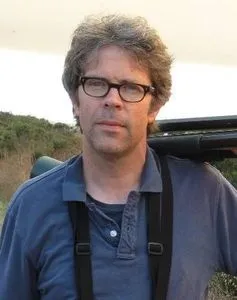 6. Jonathan Franzen
6. Jonathan Franzen
You either love Jonathan Franzen, or you really, really don’t. I happen to be in the former category, becoming a die hard fan with Freedom, a crazy all-over-the-place whirlwind centering on the fictional Berglunds, and touching on beloved caricatures such as the bored/misunderstood housewife, the righteous nature lover, the turned-famous-when-he-got-old musician, and the young, idealistic political volunteer. But there’s so much more. Like Parks and Recreation’s Leslie Knope, halfway through the book I had the urge to force someone else into reading it alongside me, screaming, “I WANNA TALK TO YOU ABOUT PATTY!” Franzen captures this moment right now with electric wit, compassion, and a wink-wink in-jokiness that is just plain endearing.
-Alison Peters
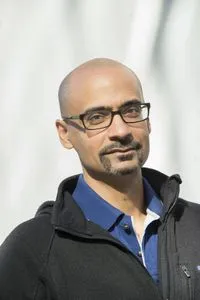 5. Junot Díaz
Three books, three knockout successes. Drown won him the PEN/Malamud Award, The Brief Wondrous Life of Oscar Wao won him pretty much everything, including the Pulitzer, and This is How You Lose Her got him nominated for the National Book Award around the same time he was receiving his MacArthur “Genius” Grant. Not bad for a career, let alone an author’s first trio of books. Praise for Díaz’s work has been effusive, but it’s also entirely deserved. He’s managed to turn his powerful cultural heritage into fiction that speaks to readers in the sort of boundary-less way that only the best writing can.
5. Junot Díaz
Three books, three knockout successes. Drown won him the PEN/Malamud Award, The Brief Wondrous Life of Oscar Wao won him pretty much everything, including the Pulitzer, and This is How You Lose Her got him nominated for the National Book Award around the same time he was receiving his MacArthur “Genius” Grant. Not bad for a career, let alone an author’s first trio of books. Praise for Díaz’s work has been effusive, but it’s also entirely deserved. He’s managed to turn his powerful cultural heritage into fiction that speaks to readers in the sort of boundary-less way that only the best writing can.
 4. David Mitchell
David Mitchell already has a leg up on a lot of today’s authors, because part of his magnum opus, Cloud Atlas, takes place in the future, so perhaps there’s a teeny chance that he has described it exactly as it will be, and he will achieve a godlike status among the future people. Even discounting that, David Mitchell is one of the most brilliant writers working today. He’s the Danny Boyle of authors: each book is a different genre. There’s his sci-fi book, his coming-of-age novel, his historical fiction, etc. Mitchell is one of the most versatile, wildly imaginative authors the world has seen, and his books are sure to stick in the world’s literary craw.
-Liberty Hardy
4. David Mitchell
David Mitchell already has a leg up on a lot of today’s authors, because part of his magnum opus, Cloud Atlas, takes place in the future, so perhaps there’s a teeny chance that he has described it exactly as it will be, and he will achieve a godlike status among the future people. Even discounting that, David Mitchell is one of the most brilliant writers working today. He’s the Danny Boyle of authors: each book is a different genre. There’s his sci-fi book, his coming-of-age novel, his historical fiction, etc. Mitchell is one of the most versatile, wildly imaginative authors the world has seen, and his books are sure to stick in the world’s literary craw.
-Liberty Hardy
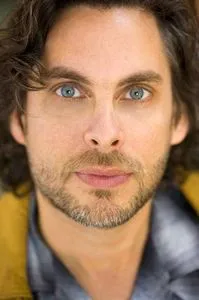 3. Michael Chabon
I’ve only read The Yiddish Policemen’s Union so far, but just from that book I know that Chabon’s a mainstay. His language, like Nabokov’s, seems to jump off the page and smack you around (in a good way). Chabon’s balance of the humorous and the tragic is masterful, and I can’t wait to read everything else that he’s written.
-Rachel Cordasco
3. Michael Chabon
I’ve only read The Yiddish Policemen’s Union so far, but just from that book I know that Chabon’s a mainstay. His language, like Nabokov’s, seems to jump off the page and smack you around (in a good way). Chabon’s balance of the humorous and the tragic is masterful, and I can’t wait to read everything else that he’s written.
-Rachel Cordasco
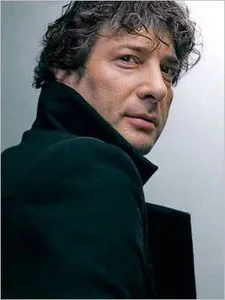 2. Neil Gaiman
Neil Gaiman is one of those authors whose work crawls into your head and stays there. Entering one of his stories is comforting, even when they’re just a little bit scary. We know that everything will be okay in the end. The challenges are overcome, the monsters are defeated, and the problems are all solved. True, the solutions are often unexpected and seemingly impractical, but that’s not the point. The problem gets solved. Gaiman is both surprising and reliable, and that’s why readers around the world keep asking for more.
-Cassandra Neace
2. Neil Gaiman
Neil Gaiman is one of those authors whose work crawls into your head and stays there. Entering one of his stories is comforting, even when they’re just a little bit scary. We know that everything will be okay in the end. The challenges are overcome, the monsters are defeated, and the problems are all solved. True, the solutions are often unexpected and seemingly impractical, but that’s not the point. The problem gets solved. Gaiman is both surprising and reliable, and that’s why readers around the world keep asking for more.
-Cassandra Neace
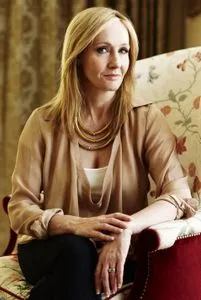 1. J.K. Rowling
Whether or not you feel that the Harry Potter books have literary merit – and I do, for what it’s worth – it’s obvious that they’ve had a tremendous impact on the literary world (understatement, much?) and will be around for a long time to come. The series has made over seven BILLION dollars in sales, it’s been translated into over 60 languages, and it’s even being assigned on school reading lists. More importantly, the series has helped to open the imaginations of youngsters across the world with its painstakingly built universe, intriguing plot lines, and characters to whom children can relate independent of ethnicity or social status.
-Rita Meade
_______________________
Sign up for our newsletter to have the best of Book Riot delivered straight to your inbox every week. No spam. We promise.
To keep up with Book Riot on a daily basis, follow us on Twitter, like us on Facebook, and subscribe to the Book Riot podcast in iTunes or via RSS. So much bookish goodness–all day, every day.
1. J.K. Rowling
Whether or not you feel that the Harry Potter books have literary merit – and I do, for what it’s worth – it’s obvious that they’ve had a tremendous impact on the literary world (understatement, much?) and will be around for a long time to come. The series has made over seven BILLION dollars in sales, it’s been translated into over 60 languages, and it’s even being assigned on school reading lists. More importantly, the series has helped to open the imaginations of youngsters across the world with its painstakingly built universe, intriguing plot lines, and characters to whom children can relate independent of ethnicity or social status.
-Rita Meade
_______________________
Sign up for our newsletter to have the best of Book Riot delivered straight to your inbox every week. No spam. We promise.
To keep up with Book Riot on a daily basis, follow us on Twitter, like us on Facebook, and subscribe to the Book Riot podcast in iTunes or via RSS. So much bookish goodness–all day, every day.











